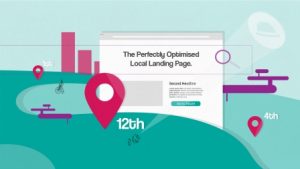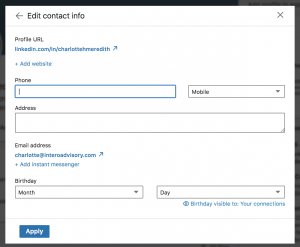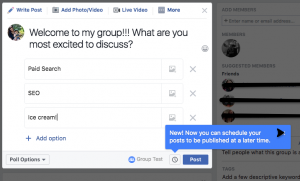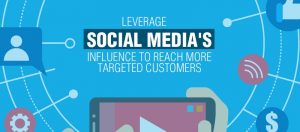— August 17, 2018

Free-Photos / Pixabay
“Growth” is one of the most important words for any business. It encompasses everything from revenue to human capital, and it’s the word CEOs and PR professionals use to tell the world that a company is performing well. But it’s a mistake to define growth only as the process of a single entity getting larger and larger – sometimes a company has to delegate and organize differently if it wants to take full advantage of its opportunity. This idea, called “unbundling,” is being implemented by some of today’s most reputable leaders, and there are several reasons why it has become a vital stage in the growth process for many companies.
Although plenty of successful companies offer a wide range of products and services under a single umbrella, consolidation can create problems. Just take a look at what happened when huge technology companies like IBM suddenly had to compete with leaner, more specialized challengers like Apple in the late 1970s and early 1980s. As a McKinsey & Company report put it: “The advantages of the generalist – size, reputation, integration – began to wither. The new advantages – creativity, speed, flexibility – belonged to the specialist.”
With the advent of more efficient and cost-effective forms of communication, more integrated supply chains, and a more diverse range of specialized businesses, there are a whole lot of reasons why you should expect to see even more unbundling in the coming years.
Give customers personalized experiences
From their interactions with brands to the products and services they expect, consumers are increasingly making personalization a top priority. According to a 2015 Deloitte report, personalization can allow companies to charge more for products and services, encourage consumers to share data, reduce development and production costs, and drive engagement and sales. These are all reasons why companies should be interested in unbundling – it’s an avenue to greater personalization.
From first-hand experience, we’ve spent a tremendous amount of time building partnerships over the last 18 to 24 months to focus on what we do best while simultaneously meeting customers where they are (so to speak). Our partnership with Overstock gives shoppers the option of hiring one of our 300,000 active professionals to install products they buy on the site, while another partnership with Facebook provides home services professionals to those searching within their Marketplace. This is the sort of personalization consumers are asking for – access to a professional who can address their specific needs within the environment where they’re shopping.
While it’s conceivable that companies like Overstock or Facebook could develop their own network of home service professionals, it wouldn’t make sense to waste resources on doing so when a potential partner already has the infrastructure in place to provide the same service. The same logic applies to many other companies that want to offer their customers an expanded range of personalized experiences. Personalization can be expensive, which is why companies have to be on the lookout for strategic partners that can share the load.
As the Deloitte report notes, “Demand for personalization runs counter to the dominant model of providing high-volume products or services through mass distribution or generic service suppliers. The move from mass production to mass personalization can have big cost implications…” When you consider the surging demand for personalization alongside the ever-present necessity of keeping costs down, it’s clear that unbundling is one of the best strategies for companies that respect their customers’ unique interests and pain points.
Show customers exactly what your company has to offer
Here are two of the most important messages brands can communicate to consumers: 1) Exactly how customers benefit from their products and services and 2) Why no other company is capable of providing these benefits as effectively or affordably. The larger and more diffuse a company becomes, the more difficult it is to deliver these messages with any precision.
By narrowing your focus to the areas in which your company excels, it will be easier to craft a coherent marketing strategy that showcases the company’s unique strengths. Even when a company offers a diverse array of products and services (and has no intention of reducing the scope of its offerings), unbundling can be a powerful tool.
Just take a look at the vast collection of subsidiaries and brands associated with a giant company like Unilever, many of which have unique teams and strategies for capturing market share. When a company is unbundled, there are more opportunities to test out innovative ideas, learn about different consumer demographics, and personalize customer experiences.
Instead of trying to appeal to everyone with a vague sales pitch that will leave consumers with no idea what makes your company special, you should only target markets that are receptive (or have the potential to be receptive) to your brand’s message.
It’s important to remember that we’re in the big data era of marketing, which means it’s easier than ever for brands to learn about consumers’ habits and preferences. This gives companies the ability to design products and marketing campaigns that are catered to specific groups of consumers. While it may seem more lucrative to cast a wide net and hope for the best, the most successful brands are the ones that understand their audiences and how to talk to them.
Do what you do best
The barriers to starting a business are lower than ever, thanks to all the digital resources available to entrepreneurs and the growing number of independent contractors who make it unnecessary to hire full-time employees. Meanwhile, huge companies like Amazon continue to diversify (and in many cases, unbundle) their products and services while expanding into new sectors. In other words, businesses face plenty of competition from established companies and newcomers alike.
One of the best ways to stay ahead of the competition is to create unique value for your customers, and this can be done by unbundling.
For example, another Deloitte report (also published in 2015) points out that the rationale behind bundling can be undermined by the introduction of new technology and changes in the market: “New entrants take advantage of technologies – such as digitization and aggregation platforms – to economically offer individual components of the product bundle that may be of higher quality or value than the limited offering in the bundle.”
The authors of the report cite Craigslist as an example of successful unbundling, as it snatched classifieds away from newspapers by “improving value for buyers by offering a wider array of free searchable content and for sellers, low-cost access to more buyers.”
Newspapers have had to do a little unbundling of their own. As advertising revenues and print subscriptions have dropped, many papers can no longer afford to cover the news as broadly as they used to. Instead, they are increasingly focused on hyper-local content – something they’re in a uniquely strong position to provide, as major news outlets don’t have resources in the vast majority of media markets throughout the country.
When companies offer something uniquely valuable and focus on the right markets, their chances of success increase dramatically. That’s the power of unbundling.
Business & Finance Articles on Business 2 Community
(71)








